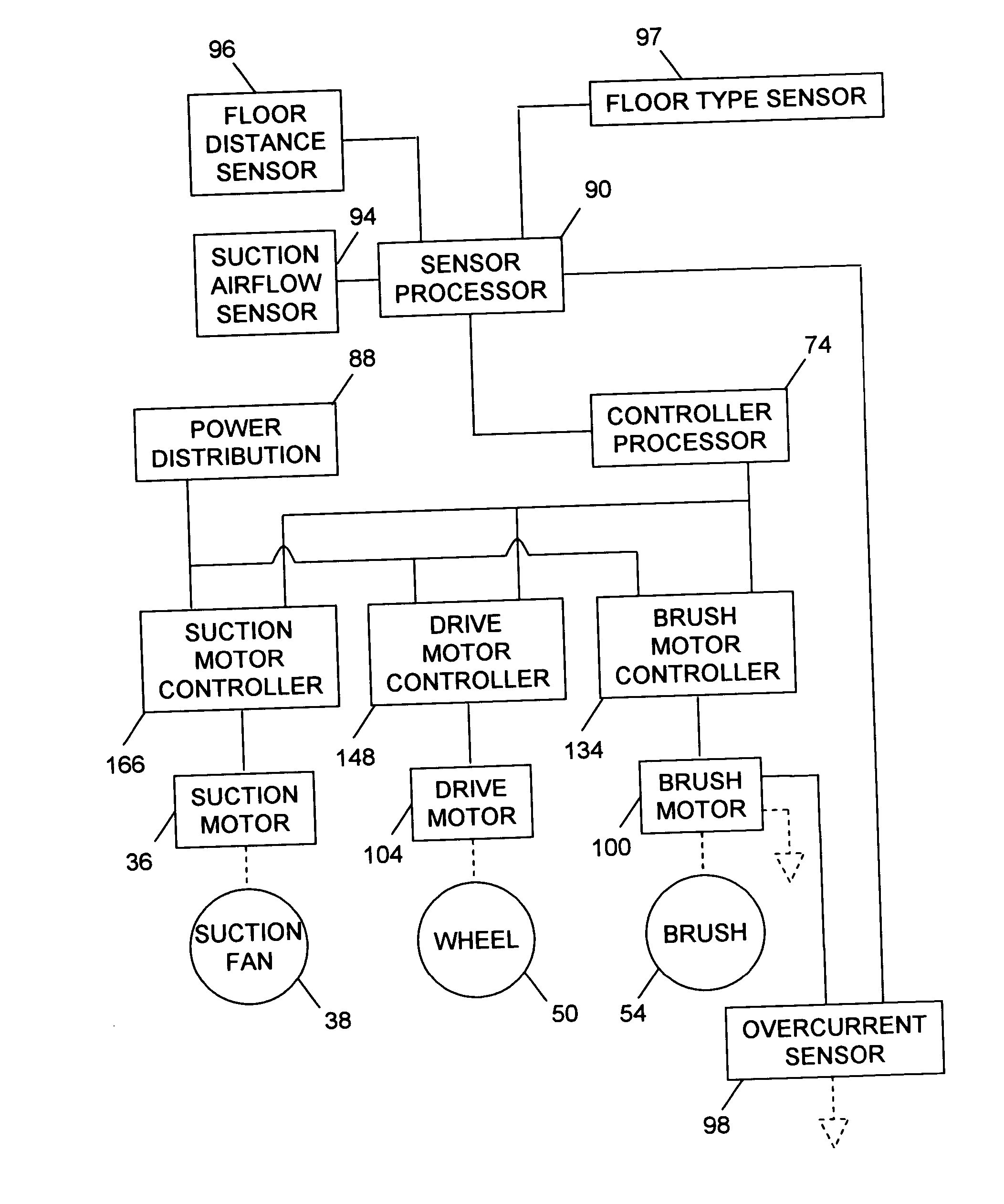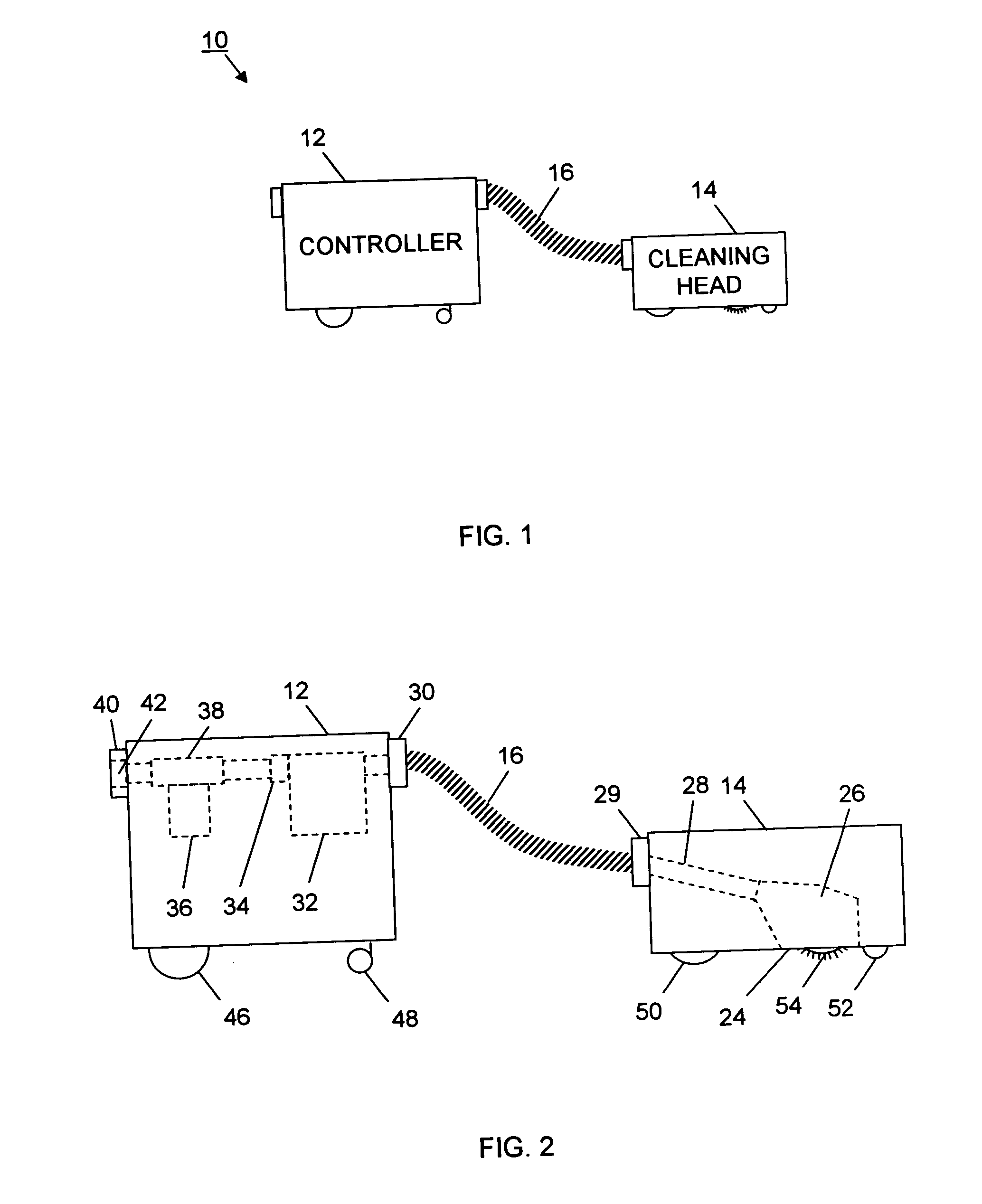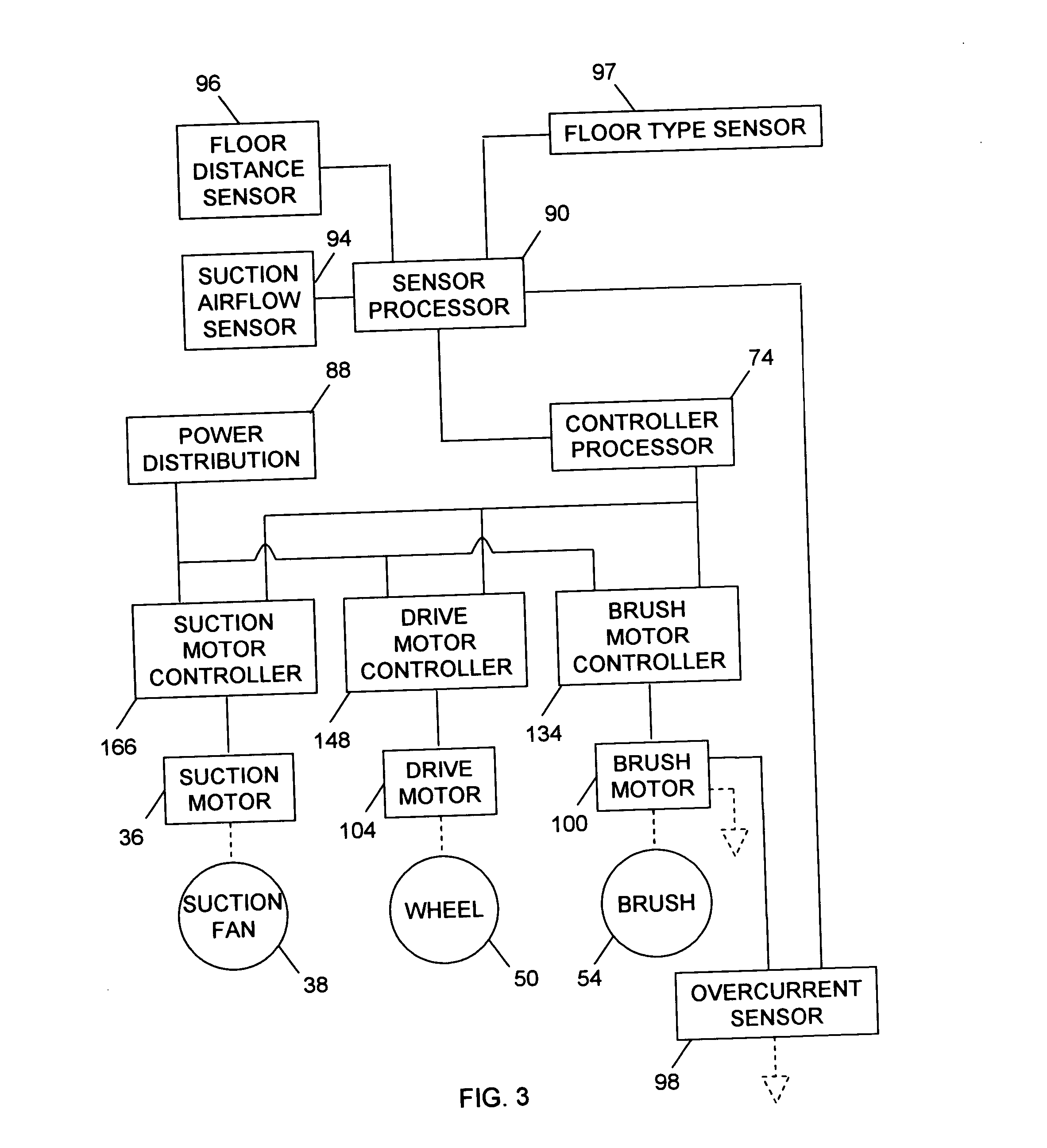Sensors and associated methods for controlling a vacuum cleaner
a technology of vacuum cleaners and sensors, applied in the direction of process and machine control, distance measurement, instruments, etc., can solve the problems of brush motor current, no current robotic canister-like vacuum cleaner senses suction airflow, and no technology of light wave sensors
- Summary
- Abstract
- Description
- Claims
- Application Information
AI Technical Summary
Benefits of technology
Problems solved by technology
Method used
Image
Examples
Embodiment Construction
[0044] While the invention is described in conjunction with the accompanying drawings, the drawings are for purposes of illustrating exemplary embodiments of the invention and are not to be construed as limiting the invention to such embodiments. It is understood that the invention may take form in various components and arrangement of components and in various steps and arrangement of steps beyond those provided in the drawings and associated description. Within the drawings, like reference numerals denote like elements. It is to be appreciated that the invention is amenable to various applications. For example, a traditional upright vacuum cleaner, a traditional canister vacuum cleaner, a carpet extractor, other types of vacuum cleaners, and other types of robotic vacuums. More generally, this invention is amenable to various types of robotic household appliances, both indoor, such as floor polishers, and outdoor, such as lawnmowers or window washing robots.
[0045] With reference ...
PUM
 Login to View More
Login to View More Abstract
Description
Claims
Application Information
 Login to View More
Login to View More - R&D
- Intellectual Property
- Life Sciences
- Materials
- Tech Scout
- Unparalleled Data Quality
- Higher Quality Content
- 60% Fewer Hallucinations
Browse by: Latest US Patents, China's latest patents, Technical Efficacy Thesaurus, Application Domain, Technology Topic, Popular Technical Reports.
© 2025 PatSnap. All rights reserved.Legal|Privacy policy|Modern Slavery Act Transparency Statement|Sitemap|About US| Contact US: help@patsnap.com



